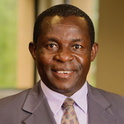Article
In Pursuit of Performance Excellence in Middle and Distance Running in Kenya
The Sport Supplement
(2007)
Abstract
Submitted by: Njororai W. W. Simiyu, Ph.D., Kenyatta University, Nairobi, Kenya
Excellent performances by Kenyan athletes in middle and distance races have projected the country’s image as a ‘world-beater’ in sport. Indeed, there are plenty of inquiries into what makes the Kenyan runners excel in middle and distance running. Several coaches have set up websites on “training the Kenyan way.” There are many assertions that the Kenyan way of training has propelled road runners to personal bests. Indeed, it is a credit to coaches who acknowledge the superiority of Kenyan training, as compared to many sport scientists who attribute Kenya’s success to genetics and altitude.
Pioneer runners such as Nyandika Maiyoro, Wilson Kiprugut, Kipchoge Keino, Mike Boit, Henry Rono, Paul Ereng, John Ngugi, Paul Tergat, and Catherine Ndereba have always insisted that what it takes to succeed at the highest level is natural talent, hard work, natural food, rest, and a burning desire to succeed. Juma Ikangaa, a Tanzanian star Marathon athlete in the 1980’s, states clearly that “The will to win is nothing without the will to prepare.” Sir Roger Bannister says that “the man who can drive himself further once the effort gets painful is the man who will win.” However, in trying to explain the success of Kenyan runners, many scientists seem to downplay the role of training in favor of living at altitude and having a unique genetic make up. Others have even asserted that the success has to be due to running to school and having a unique diet of blood mixed with milk!
However, success in sport is dependent on various factors. For Kenyan distance running, the following are essential: favorable social support, hard training, individual commitment, favorable geographic features including free space and altitude, an appropriate make up for the events, and some reasonably innate running ability. This fits in well with the performance paradigm, which argues that success in sport is due to harmony of internal and external factors. The key internal ones include constitution (genetics/physique), athletic condition as a result of hard training, desire to succeed mirrored in a psychological framework due to upbringing and modeling, individual technique and tactics due to training and coaching. External factors that could have lend a hand include a political climate of peace and stability, an educational system that provides room for sport from the grass-root to the international level, a widespread running infrastructure as well as recognition of pioneer runners as role models, environmental conditions ideal for training at altitude, and lack of automation, which allows for more physical activity.
The combination of one’s genetic make up is only a foundation upon which success can be built via hard work, a carbohydrate rich diet, rest, good coaching and training, and a well structured environment. A lot of potentially good athletes have retired at high school because they never had the burning desire to succeed the hard way through daily runs and exertion.
Keywords
- Performance Excellence,
- Middle and Distance Running,
- Kenya
Disciplines
Publication Date
2007
Citation Information
Wycliffe W Njororai Simiyu. "In Pursuit of Performance Excellence in Middle and Distance Running in Kenya" The Sport Supplement Vol. 2 Iss. 2 (2007) p. 1558 - 1448 Available at: http://works.bepress.com/wycliffe-njororaisimiyu/59/
